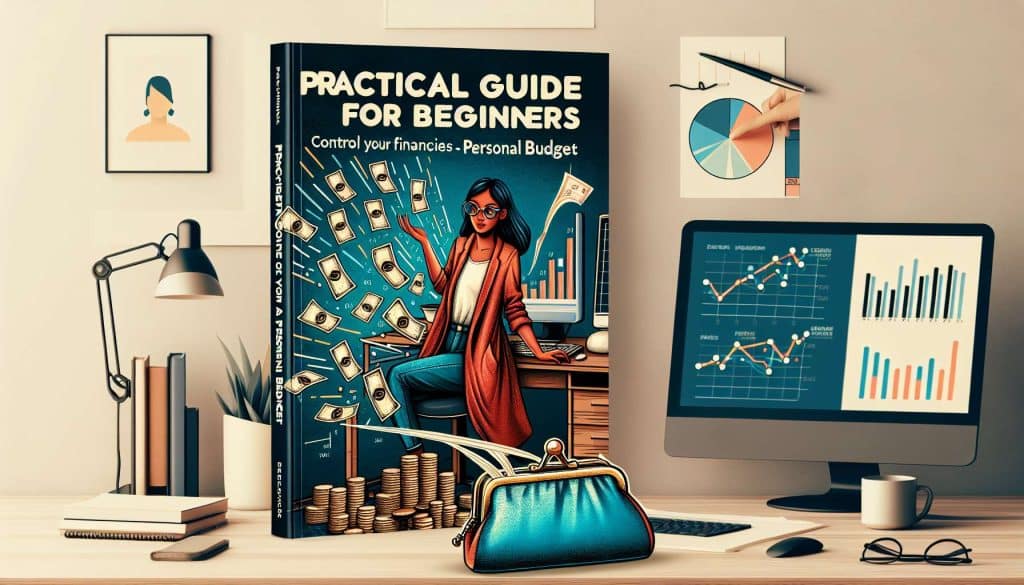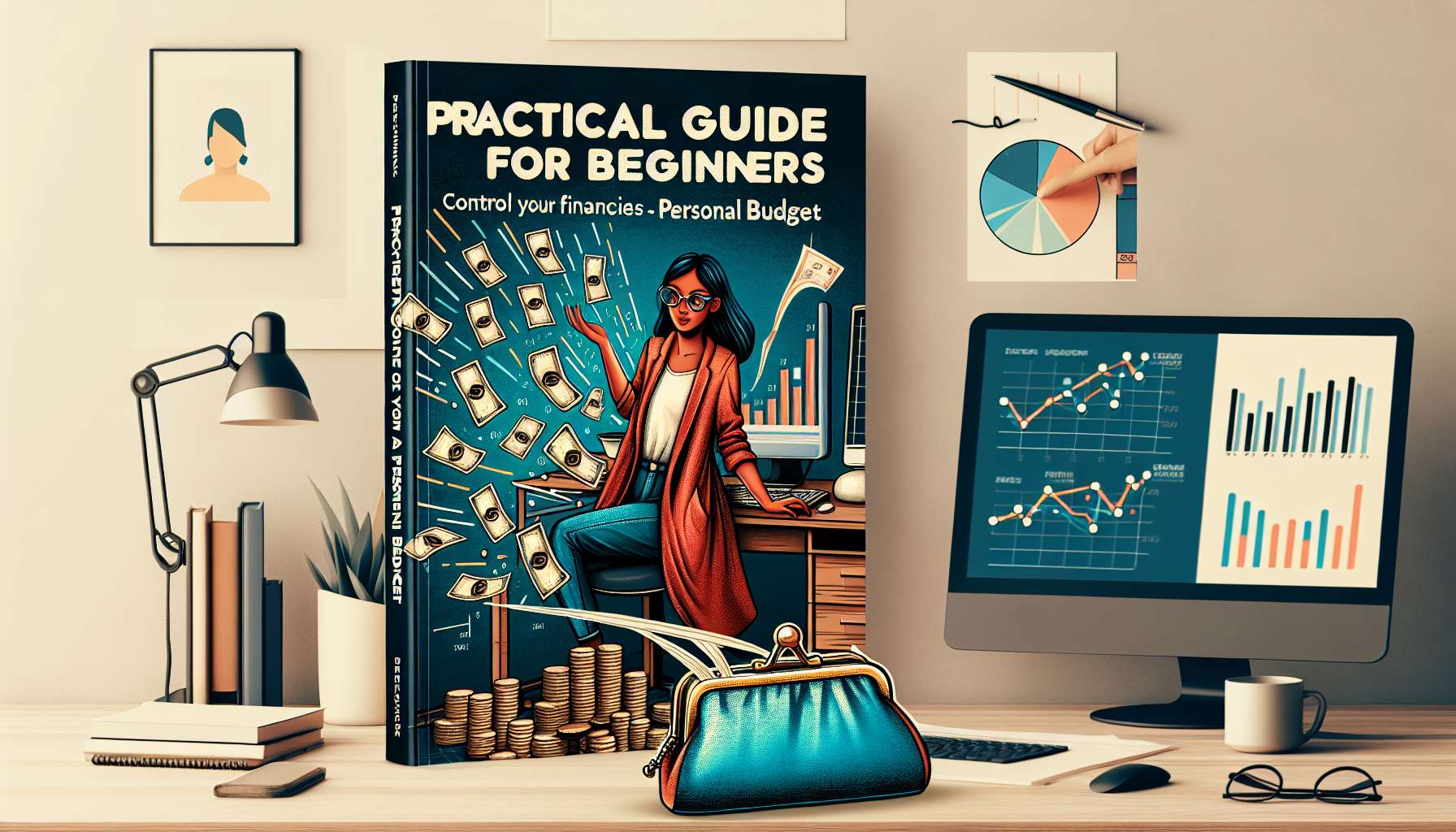Beginner’s Guide: Master Your Finances with Personal Budgeting

Anúncios

Mastering the Basics: A Beginner’s Guide to Personal Budgeting
In the fast-paced society we live in today, personal budgeting has become a vital skill. The constant rise in living expenses, combined with minimal wage increases and a wide array of tempting financial products, has made managing money effectively crucial for maintaining financial stability. However, budgeting transcends merely saving money. It’s about making strategic choices with your finances, ensuring they align with your personal goals.
Whether your aim is to save for an exotic vacation, pay off looming student debts, or simply manage day-to-day expenses, understanding personal budgeting can be a game-changer. Not only does it enhance financial discipline, but it also paves the way for financial growth and freedom. A well-outlined budget is imperative for achieving any financial aspirations, big or small.
Busting the myth of complexity, personal budgeting is quite manageable once you understand its core principles. It’s the act of summarizing anticipated income against expenditures within a particular timeframe, typically monthly. By establishing a clear budget, individuals can track their spending patterns, prioritize accordingly, and unveil potential savings opportunities, equipping them for better financial decision-making.
Anúncios
The Importance of Setting Financial Goals
Before diving deep into numbers, setting precise financial goals is a foundation that cannot be skipped. Goals serve as motivators and directional markers on your financial journey. Whether short-term, like amassing an emergency fund, or long-term, like purchasing a home, clear objectives allow for an efficient disbursement of your resources. Financial goals provide clarity and motivation, ensuring that budgeting efforts have a tangible purpose and a clear destination.
With defined financial aspirations, unexpected expenses become manageable rather than daunting. While short-term goals might focus on immediate needs, long-term planning enables secure investments in future endeavors, such as retirement savings. Achievable goals eliminate ambiguity, converting lofty dreams into tangible targets. With clear objectives mapped out, personal budgeting becomes both purposeful and dynamic.
Establishing realistic goals also fuels consistent progress. By closely aligning your budget with your aspirations, you create an actionable plan that can evolve with your life circumstances. With every accomplishment, the path to financial independence seems clearer, and every monetary decision becomes purposeful, propelling you closer to the life you envision.
Anúncios
How to Set Achievable Financial Goals
- Be Specific: Turn vague aspirations like “save more” into precise actions like “save $200 monthly for vacation.”
- Make Them Measurable: Ease tracking by assigning numerical values to your objectives.
- Be Realistic: Challenge yourself, but don’t set goals so high that they demotivate you.
- Time-Bound: Setting deadlines introduces urgency and reinforces commitment.
Creating Your Personal Budget
Post goal-setting, crafting your budget is the natural successor. Familiarizing yourself with your net income sets the stage for smart budgeting. Document all income sources, be it salaries, freelance work, or rental earnings, ensuring net figures post-tax are what you begin with. Knowing your monthly intake provides the baseline for your budgetary framework.
Your expenses must be carefully cataloged and categorized. Basic categories include housing, utilities, groceries, and secondary categories could involve leisure or transportation. Be thorough and capture all expenses, including both consistent and variable costs. Unveiling these trends aids in recognizing where adjustments can be made, sparking savings opportunities.
Analyzing and adjusting lies at the heart of budgeting. Comparing expenditure against income reveals areas of potential cuts. If spending outweighs earning, it’s time to trim unnecessary indulgences, possibly opting for budget-friendly alternatives. Even when under budget, it’s worth exploring ways to optimize savings or enhance investments.
The Power of Tracking Your Spending
Monitoring expenses is pivotal to budgeting success. Utilizing digital tools like Mint or YNAB can streamline this, categorizing transactions and offering analytical insights. Regularly reviewing these metrics fosters financial awareness, allowing adjustments aligned with evolving financial landscapes and personal needs. This vigilance ensures your budget remains relevant and actionable.
Benefits of Regularly Reviewing Your Budget
Routine budget reviews keep you informed about your financial standing, enabling agile responses to changing circumstances. This practice minimizes unexpected expenses, offering a clearer picture of discretionary spending. Life isn’t static, and neither should your budget be; regular evaluations enable bouyancy amidst change.
Common Budgeting Mistakes to Avoid
- Being Overly Restrictive: Too tight budgets without room for enjoyment can lead to burnout.
- Ignoring Irregular Expenses: Overlooking these can derail financial plans; plan ahead.
- Neglecting Emergency Savings: Keeping a fund for emergent needs avoids debt pitfalls.
Tips for Successful Personal Budgeting
- Start Small: Ease into budgeting with a basic plan, refining it with experience.
- Automate Savings: Regular, automated transfers help in sustaining consistent savings.
- Celebrate Milestones: Recognizing achievements helps in sustaining motivation.
- Seek Guidance: Professional advice can illuminate challenges and offer personalized solutions.
Characteristics of Personal Budgeting
- It offers a straightforward view of finances, fostering informed decisions.
- Enables prioritization of expenditure, facilitating smart financial strategies.
- Consistent tracking uncovers spending patterns, shining light on potential savings areas.
- Dynamic adjustments ensure budgeting stays relevant amidst changing financial situations.
Benefits of Personal Budgeting
Adopting personal budgeting creates a disciplined approach to finances, transforming aspirations into achievable goals. This proactive management style eradicates financial stress, offering clarity and reducing anxiety related to unexpected expenditures. In essence, budgeting fosters a confident, assured financial mindset, creating the foundation for a secure future.
- Ensures financial security by mitigating oversights and fostering savings.
- Facilitates goal achievement, be it short-term purchases or long-term investments.
- Empowers decision-making with clear insight into spending habits and financial standing.
- Maintains a fluid financial plan, adaptable to life’s various curveballs.
- Transforms dreams into reality by streamlining financial priorities and commitments.
The journey towards effective personal budgeting rewards with both tangible and intangible gains. Commitment to regular assessment means never being caught off-guard financially. Ultimately, the skill of budgeting creates a path towards financial independence, teaching invaluable lessons in patience, foresight, and financial literacy—crucial tools in today’s ever-evolving economy.
Incorporating these practices, individuals discover freedom within constraints, achieving more with less and enjoying financial peace in times of uncertainty. With each budgeting cycle, preferences might shift, but the core principles of understanding, adapting, and thriving remain static, guiding you towards a prosperous financial future.





